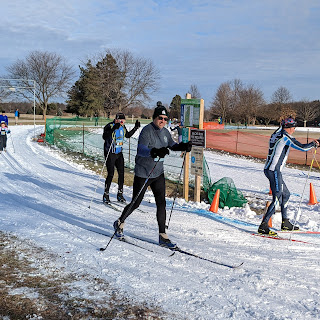What took you so long!?!
The day after I found out my birth father had passed away, I
found myself on a phone call with his brother (my UNCLE!) for the first time.
He asked a perfectly reasonable question given the situation, one that I had
been wrestling with in some form for 25 years; why did I wait so long to reach
out?
I don’t remember what I said that night, aside from
explaining that I needed to get over the anger I had felt for so many years.
But that answer was incomplete because the real answer takes to long to
explain.
Please understand, my anger was real. For almost the first
21 years of my life, I thought I knew who my father was and thankfully, I was
told the truth. While I am forever grateful that I now know the truth, it was
still jarring. I felt betrayed by almost everyone I was close to, including the
family member who decided to break the news to me. Time and truth helped me heal,
and I was able to start forgiving everyone, including the family member who
took a stand to tell me.
Context helped too. Small Midwest towns can be unforgiving
when people break norms, and this was especially true in the early 1970s. Faced with an impossible choice, my mom
decided to fight for me. I couldn’t be mad forever for that simple fact.
My birth father was a different story. I held great anger
against him for many years, not
understanding how someone could walk away from their child, even in
difficult circumstances. Never once did he make an attempt to reach me. Never
once did he inquire about my well-being. As far as I knew, he just walked away.
It wasn’t until I
learned that he died that I gained some of his perspective. That’s also when
I realized the enormity of the burden I placed on myself to be an exceptionally
accomplished person in order to show him how much he missed out on by walking
away. I punished my self mightily for the mistakes I made on my life’s journey,
expecting the results of a perfectionist even though I know well that I am not
perfect.
Anger in the way I was expressing it, internalizing it,
believing in it, has never served me well. Sadly, I had only one way of dealing
with it for many years; deny it was there until the emotion was so strong I
exploded. When I decided I had lived with this long enough and sought
professional help, my relationship with my anger began to change, allowing me
to feel other emotions about my birth father.
Over time, that anger abated and I began to struggle with
the thought that I would somehow be disturbing him. Even with internet
sleuthing, I was only able to narrow my search down to about three dozen people
and I never felt comfortable with calling each of them until I found the right
one.
What havoc would I be causing for those who had no paternal connection to
me that happened to share a fairly common name? And if I did find him, did he
have a family that did not know about me? Would I be disrupting a happy family
and maybe destroying a functional family, and if I was, for what reason? What was
I really hoping to gain?
I was also concerned about how finding my birth father would
impact my relationship
with my mom. We worked hard to get to a good place together and I have
always known this was a painful period of her life. While I did not want to
re-open any wounds for her, I also struggled because I need to know more about
my birth father.
This all came to a head for me a few years ago. As I was
reading to The Kid before bed, she stopped me and asked me if I ever thought of
finding my birth papa. Of course, I said, knowing that I had thought about it
for years. The rest of our conversation ended up being a bit of a blur,
something that I journaled about a few days later.
You see, we have been open with The Kid about her adoption
since day one, tailoring our talks with her to be age appropriate. We keep in
touch with her foster mom too, although not as often as we should. My wife and
I agreed to answer all of The Kid’s questions as honestly as we could because
we knew that even though she does not remember being in foster care, it would
be obvious to her that we weren’t her birth parents the minute she went to
school. Being her source of truth, even at an early age, was more important to
us than keeping up an illusion that would ultimately crumble and potentially
destroy our relationship.
That approach to her adoption means I have to be honest with
her about my journey. If I let my anger, my fears, my anxieties, my sense of
obligation stand in the way of meeting my birth father, how can I expect to be
an empathetic advocate for her?
The tension that question caused lived in my heart and soul
for a few years. I needed to be ready for whatever outcome would come my way.
Was I ready to be rejected? Was I ready to be embraced as a member of the
family? Was I ready to meet him and figure out that we hated each other? Was I
ready to meet him and find a man waiting to meet the son he had dreamed about watching
a Tigers baseball game with? Was I ready for him to be disappointed in me? Was
I ready for him to be proud of me?
Ultimately, the outcome we had was unexpected but
immortality on this earth only exists in books. I won’t get to go to an Astros
(his favorite baseball team) game with him, or go fishing with him, or drink a
couple of barley pops together as we try to figure out our new normal. But I’m
glad I started asking the questions. I’m glad my daughter asked her question,
too. Sometimes our children are our greatest teachers.



